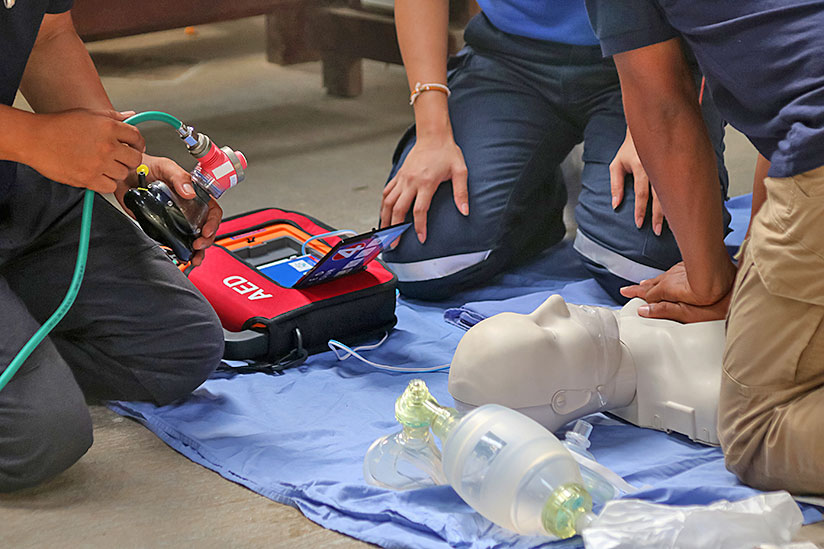The Role of Cabin Crew in Medical Emergencies
Cabin crew members play a crucial role in ensuring the safety and well-being of the passengers on board. In-flight emergencies can range from minor incidents such as motion sickness to more severe situations such as heart attacks or fever. Being the first line of response, the cabin crew must be equipped with the necessary skills and knowledge to handle these complex situations with composure and efficiency.
Training at the Institute for Air Hostess Training
Aspiring cabin crew undergo rigorous training at a specialized institute for air hostess training. These specialized institutes provide air hostess training courses that cover a wide range of topics, including aviation hospitality, and travel management. In particular, the curriculum includes modules on emergency response and first aid, focusing on the unique challenges presented onboard.
The air hostess training courses prepare students with the skills and knowledge required to assess and respond to medical emergencies promptly. These skills involve learning to identify symptoms, basic first aid, and effectively communicating with passengers and the flight crew. The goal is to create a team of trained professionals who can handle in-flight situations easily, ensuring the safety and comfort of everyone on board.
Aviation Hospitality and Travel Management in Emergency Situations
In addition to medical training, air hostess courses also focus on aviation hospitality and travel management programs. This approach ensures that cabin crew members not only respond effectively to emergencies but also maintain a high standard of customer service throughout the flight journey.
When an in-flight emergency occurs, the ability to manage the situation calmly and reassuring passengers is important. This is where the aviation hospitality and travel management components of the training come into play. Cabin crew members are taught to balance their responsibilities as first responders with their roles as service providers, ensuring that passengers feel secure and supported during such challenging times.
Cabin crew members must possess a unique set of skills and respond calmly in the event of an in-flight medical emergency. Cabin crew members are well-prepared to handle these situations because of the specialized training provided by institutes for air hostess training, through comprehensive Air Hostess Training Courses which also cover aviation hospitality and travel management course. These professionals play a crucial role in the aviation industry because they are the first responders in the air, protecting passengers' safety and well-being.
